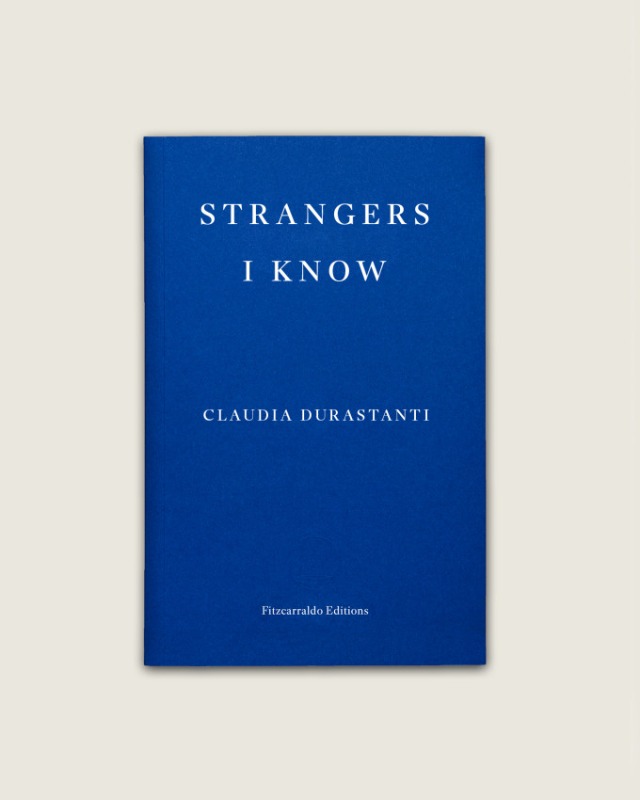search
date/time
 | Lancashire Times Weekend Edition |

Caroline Spalding
Features Correspondent
P.ublished 8th March 2022
arts
Review: Strangers I Know By Claudia Durastanti, Translated By Elizabeth Harris

Early in the novel, the narrator, who began by recounting the stories she has come to know of her parents’ earlier years, tells us “you’re just the echo of a past mythology,” which immediately struck a chord. The stories relayed in this novel, indeed the stories we come to create in our own existence, are not always easily negotiated between fact and elaboration.
Strangers I Know is reminiscent of a confession, whilst also embodying a complex interrogation of the self: the narrator’s struggle to place herself and her identity into a world about which so much seems unknown. Much of her journey looks back towards her parents; she even recalls the conflicting story of how they met. And despite the close familial connection, it begs the question of how much we really know about those nearest and dearest to us. How much of what they tell us do we accept unquestioningly, and is there ever room for doubt?
Throughout, the narrator is an elusive character; we know she is Claudia, suggesting that the novel is obscuring the boundary between fiction and memoir, but her name is almost irrelevant, she portrays herself as anonymous. She is honest with the reader, but she retains a distance, as if her lack of self-definition renders her wary. Growing up, she recalls her passage through the typical phase of teenage rebellion, as if deliberately trying to shrug off all stereotypes applied, yet conversely, and later in the story, there’s almost a desperation to fit in, whilst retaining, if possible, a sense of independence. We never feel she is weak; indeed, she is clearly a highly intelligent character: extremely knowledgeable in art and literature – the references made to authors and their novels is expansive – an opportunity I think for the well-read to draw a fresh perspective, draw comparisons they hadn’t seen before; but for those less widely read, it’s rather like taking a whistle-stop tour through the endless possibilities the world of literature has to offer.
And along the way, the language – how it has translated from Italian into such lyrical and beautiful English - is astounding and can only be down to the skill of the writer, and that of the translator. The language structure doesn’t always play by the rules, with long, expressive sentences that run on and on, somewhat akin to a stream of consciousness. About translation, Claudia speaks of the mistakes she makes, “because meaning doesn’t take on a stable form for me, everything I think and everything I say suffers in the migration between different countries,” but in this case the translation suffers no such ill-effect, and really, her comments instead reflect her own experience across borders, in search of what could be considered her true home. She later offers - “Translation is also a story of poetic imprecision,” which is a perfect summation of that ability to dexterously and faultlessly reflect nuance and cadence in a foreign tongue.
Also by Caroline Spalding...
Review: Cold Enough For Snow By Jessica AuReview: Good Intentions By Kasim AliWalking For Wellbeing – It Really Does WorkReview: The Love Songs Of W.E.B. Du Bois By Honorée Fanonne JeffersWeekend Walking: To MansheadThe fact both her parents are deaf, yet avoid sign language and therefore lack a typical method of exchange, feeds into the theme of the search for definition and the power and purpose of language. We are cautioned that our narrator is not averse to lying, how she recognised with literature, that “if I told my story well enough, they’d believe me.” Even her commentary on language and writing is a testimony to her aptitude for prose and the complexity tied up in meaning. On metaphor, she tells us -“while we rely on a shared archive of symbols when we read a work of art, our internal translations of those symbols vary”, but as a writer, she “depends on irony and metaphor,” which to her parents, at least, falls flat. To them, words are “unequivocal, (they) can’t possibly have multiple meanings”.
This highly engaging novel gives us much to consider; its beautiful prose is both provocative and enthralling - an ideal mechanism for focussing not only on how childhood defines adulthood, but how language, its meaning and its implication, really defines how we choose to view ourselves. Yes, the child may be the father of the man, but so often it is open to interpretation: we need language to define ourselves, yet unwittingly, we ourselves are defined by the language we share.
Strangers I Know is published by Fitzcarraldo Editions